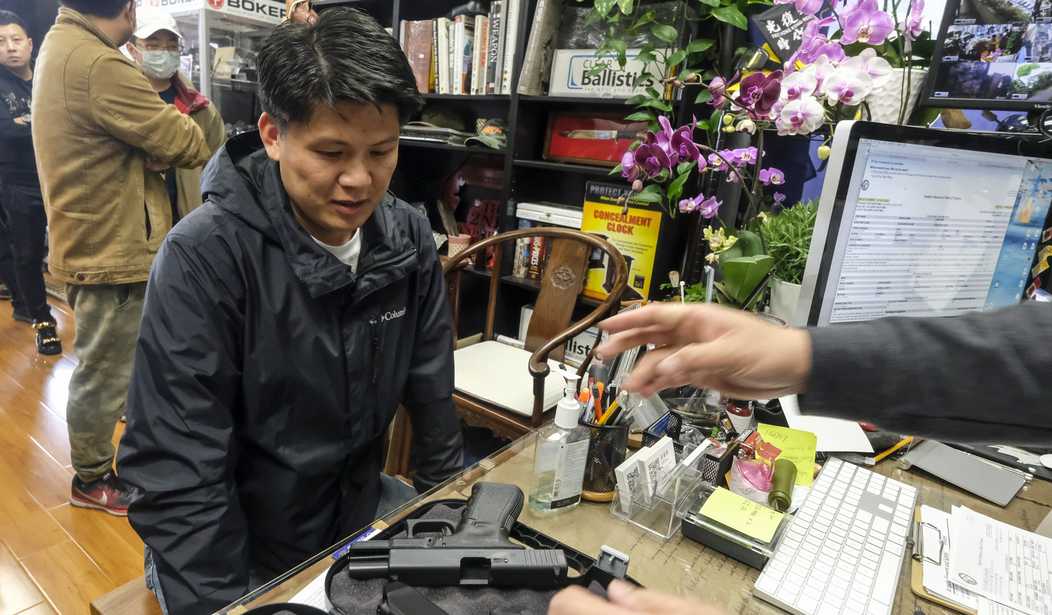The gun control lobby has never been as well-funded or powerful than it is today. It has a lock grip on the Democratic Party, where even ten years ago one-in-four Democrats in Congress were rated "A" by the NRA. It has a champion in Joe Biden, who's even created an in-house gun control jobs program that's inserting itself throughout the federal bureaucracy (most notably at the ATF). It's allies in the media can be counted on to run puffball pieces on the "gun safety movement" whenever they're called on to do so, and anti-gun politicians don't need to worry about facing a skeptical reporter or a semi-informed anchor when they sit down for an interview.
While this is a Golden Age for the gun control lobby in terms of its power in D.C., it's still worth noting how far the gun control movement has been forced to retreat, at least in its messaging, since the modern gun control debate began in the late 1960s. Fifty years ago the anti-gunners were openly advocating for a national ban on handguns, and were encouraging cities like Washington, D.C. and states like Massachusetts to adopt bans of their own.
Madison, Wisconsin never went so far as to ban handgun possession, but it did ban gun sales in 1974. Recently the Wisconsin State Journal highlighted its editorial in support of the ban, and while it's gratifying to see how far we've come in the past 50 years, it's also kind of depressing to see how little the arguments have changed over the ensuing decades.
While no serious person contends that a city ban on the sale of guns would significantly reduce violent crimes in Madison, such a symbolic ordinance could set a tone to at least point up the problem of gun traffic and help trigger a nationwide effort to match the well-financed efforts of the gun lobby to the contrary.
To hear today's gun control activists tell it, the "gun lobby" as we know it didn't come into existence until the late 1970s. Up to that point the NRA (so the story goes) was full of moderate gun owners who were just fine with various gun control measures. Yet here's the paper in Madison complaining about the "well-financed efforts of the gun lobby" years before Wayne LaPierre started working as a lobbyist for the NRA.
The need for gun regulation is obvious. Though political assassinations and attempted assassinations dramatize the danger of unregulated gun ownership, they represent only a tiny percentage of the tragedies associated with guns in this country.
In the 1970s it was political assassinations that were the big bogeyman for the gun control lobby, just as today they prey upon public fears of a mass shooting, which are also incredibly rare.
The Madison City Council did approve that symbolic ban on the sale of handguns in 1974, but that was probably the high water mark for the Second Amendment prohibition movement in the city. In 1993, voters in Madison rejected a proposed ban on handguns 51-49, and you can find multiple gun stores in Madison these days, where folks are free to not only possess firearms in their home but to carry them for self-defense.
While we've made incredible strides since 1974, the gun control lobby has gotten wiser, and I believe it's never been as dangerous as it is today. No politician is seriously talking about banning handguns through legislation in 2024, but there are a number of blue state AGs who are trying to enact a semi-auto ban (starting with Glock) through litigation. They're trying to reduce the right to carry to a few city streets and (maybe) wide open rural spaces. They're weaponizing a government agency and turning it into a gun control group with law enforcement powers. Most importantly, they're planning on overturning Heller, McDonald, and Bruen the moment they get five Democrat-appointed justices on the Supreme Court. I don't think that would lead to an immediate nationwide ban on possessing a handgun, but bans on the sales of handguns like Madison's would no longer be a thing of the past. Given the far-left tilt of city politics, they'd probably be one of the first in the country to put a new prohibition in place.









Join the conversation as a VIP Member